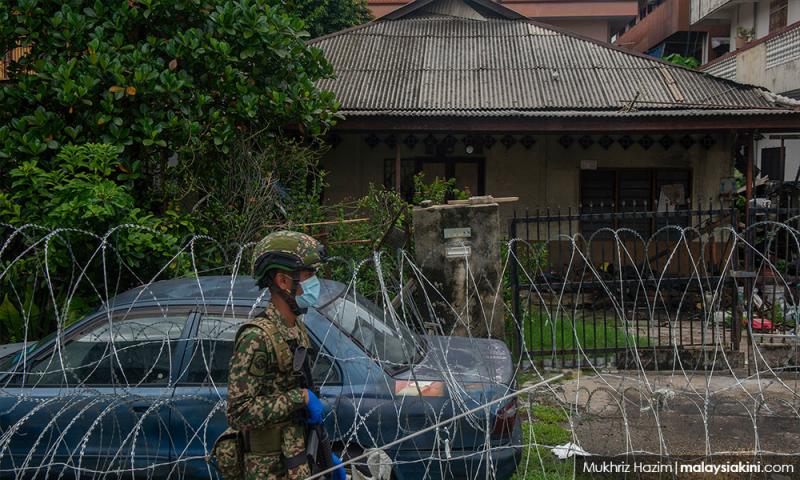MP SPEAKS | Empower social welfare beginning with crucial legislation
MP SPEAKS | The harsh lockdowns have been difficult on us all, but even more so on vulnerable groups such as female-headed households, the elderly, the differently-abled and ostracised groups such as refugees.
Yet, here we are a year on, with lacklustre effort on the side of the Women, Family, and Community Development Ministry to push for the reforms these vulnerable segments so desperately need.
As the emergency commenced, legislative power fell almost solely in the hands of the executive. We have been under emergency rule for most of this year, yet key legislations such as the Sexual Harassment Act and the Social Workers Profession Act still hang in the balance despite executive power to approve laws.
We’ve seen an increase in reported domestic violence cases, with the police recording a nine percent increase in cases as compared to before the MCO. The factors driving this increase include financial strains, drug abuse, and stress from the loss of income.
We also have cases of child sexual exploitation both online and offline on the rise, as the lockdowns force both children and sexual predators indoors. Not to mention of course the incomes and jobs lost during the course of our endless lockdowns and the families who may have now lost their breadwinners to Covid-19.
During such times of crisis, social workers play a critical role in ensuring vulnerable individuals get the help they need. Whether it be a child trapped in an abusive home, or women in situations of domestic violence, or former drug users doing hard rehabilitative work, social workers are the unseen and unsung heroes of our society who are the “lifeboats” for our most vulnerable, be it in times of crisis or in periods of relative peace.
The act has been in the works for a long time now, with our former deputy prime minister and former women, family, and community development minister Wan Azizah Wan Ismail pushing for it back in late 2019. However, the abrupt change in government the following year sent all the bill’s momentum screeching to a halt.
In March this year, the current Women, Family, and Community Development Minister Rina Harun announced that the bill was in its final stages of drafting, but with 17 months already passed since the pandemic first made its devastating presence felt on individuals and families, it feels almost like too little too late.
Passing the Social Workers Profession Act would elevate the status of the individuals who power our country’s many social welfare programmes, allowing them to be seen as professionals and thus making the management of social work in Malaysia more efficient.
The act requires all social workers to formally register themselves and be issued a certificate by the Social Work Profession Council. For the important role they play in the lives of our most vulnerable, it is equally important to ensure that they are qualified to carry out the work they do, especially since their work can involve elements of the bio-psycho-social.
When it comes to working with vulnerable individuals who may be traumatised, or are trapped in delicate or dangerous situations, competent social workers are absolutely essential in ensuring these individuals are sufficiently supported and protected in their time of need, and ultimately safely removed from harm’s way.
We’re living in a time of widespread poverty and suffering, and the Malaysian Welfare Department (JKM) and the social workers who operate under them have a huge responsibility to fulfil.
Social workers are the ones who go to the ground to identify individuals in need. They may connect those seeking assistance with the appropriate resources, provide them directly with goods, or help people fill out the paperwork required for certain social benefits. Knowing the different ways in which our poorest are deprived is critical to ensuring that any assistance given is targeted.
Our recently completed multidimensional poverty index study in Permatang Pauh conducted by Prof Fatimah Kari revealed that women-headed households are more multidimensionally deprived in almost all measured indicators as compared to male and female-headed households combined, a finding that echoes similar reports found in the United Nations Population Fund and the United Nation's Children's Fund joint study on urban poverty.
Accurate data must be combined with a high-functioning support structure to disburse the required aid and empowering social workers is a great first step.
Evidence-based solutions are needed to drive policy across all dimensions - whether it be the management of social workers, mental health, child protection, the welfare and wellbeing of ageing populations, or even female-headed households.
Among several key items the Women, Family, and Community Development Ministry, as well as the rest of the cabinet, must immediately push for is passing of the Social Workers Profession Act to recognise the work of social workers and elevate their status to professionals; supporting the decriminalisation of suicide by backing the repeal of the archaic Section 309 of the Criminal Procedure Code; and integrating the currently fragmented database of social aid across the many agencies in Malaysia under the Malaysia Social Protection Council (MySPC) framework.
We have wasted a lot of time and spurned many golden opportunities to make the changes we need to ensure the safety and security of society. Let us not waste any further.
NURUL IZZAH ANWAR is the Permatan Pauh MP. AZRINA SURIP is the Merbok MP.
The views expressed here are those of the author/contributor and do not necessarily represent the views of Malaysiakini.
RM12.50 / month
- Unlimited access to award-winning journalism
- Comment and share your opinions on all our articles
- Gift interesting stories to your friends
- Tax deductable
